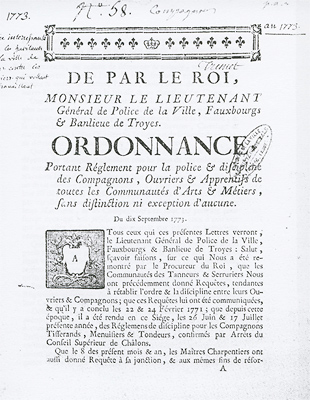Corporations Masters and companions
“Yes,” you may say, “but I’ve found such-and-such a notarised document in such-and-such a parish register certifying that my ancestor was a qualified ‘Master Carpenter’.” You’re on the wrong track! This means that he was a self-employed carpenter, his own boss. In his youth, he may well have done his Tour and been a member of a guild society, but he may just as easily have not.
The mention of “Companion Carpenter” is even more deceptive and should in no way be regarded as a reason for hope. The designation simply means that he was a wage-earning carpenter, a worker in carpentry. The term “companion” was in common use and did not automatically imply a “Companion of Duty”. Used during the Ancien Régime, together with the term “garcon”, it signified that the person was no longer an apprentice but was not self-employed. In the framework of the corporation, it was an intermediate state between apprentice and master. At the same, it was quite possible for a “corporation companion” also to be a “Companion of the Tour de France”.

